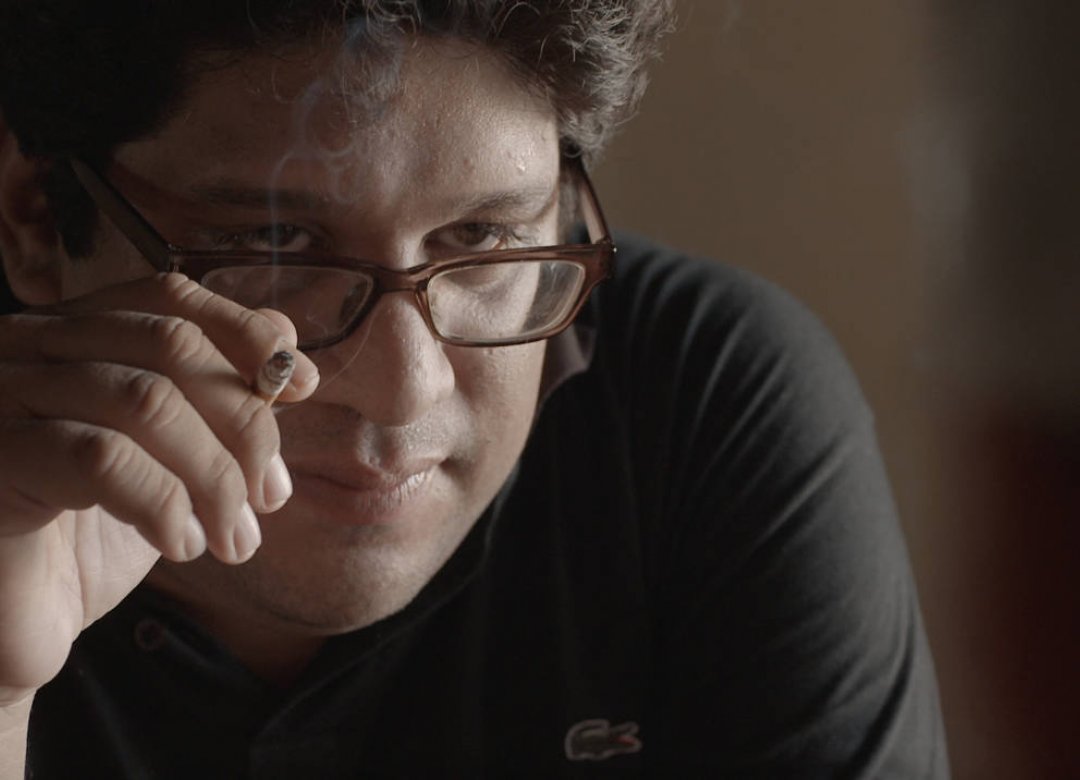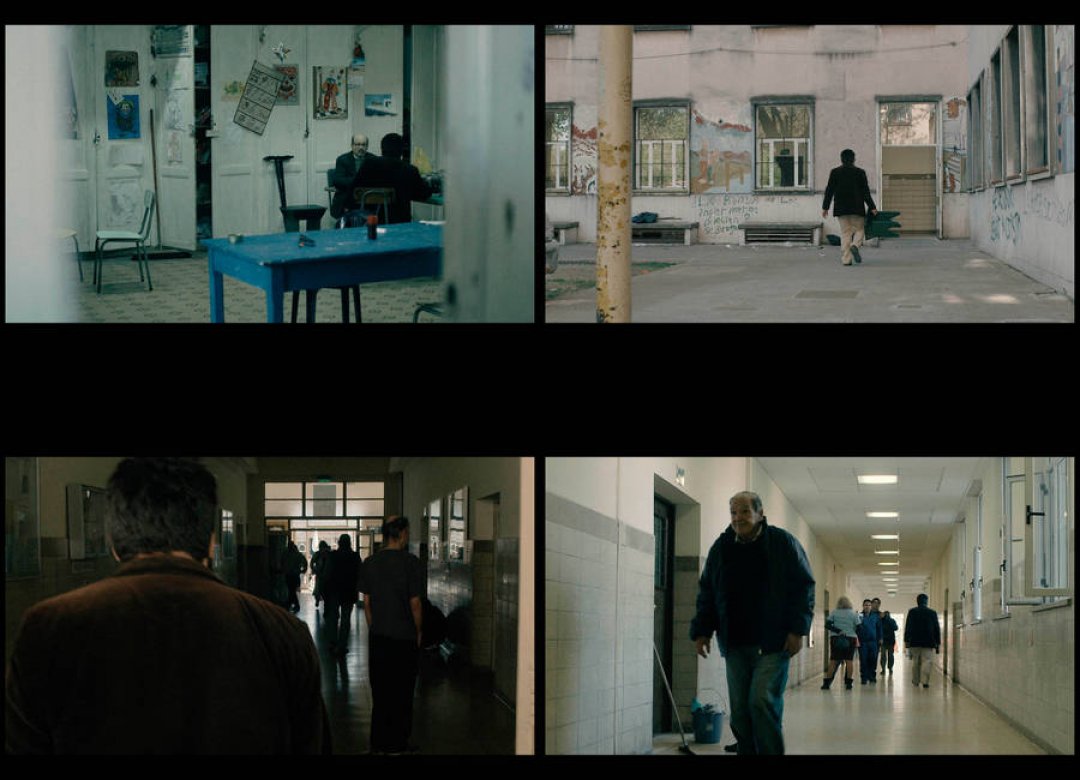The Argentinean virtuoso Martin P. had a great future ahead of him. The doors to many prestigious universities around the world were open for the talented pianist. But he ended up in a psychiatric ward, unable to find his peace and reach his purpose. After many years in a mental institution, he is prepared to find his way back to society. The French-born Czech filmmaker Artemio Benki follows Martin’s journey. In this interview, Benki talks about different aspects of his approach.
Where would you place yourself within the context of Czech cinema? Solo is an example of a movie that introduces a non-local topic, which is still not a matter of course.
Although I’m not a Czech native, I’ve lived here for almost 25 years, so you can consider me Czech. I don’t eat croissants every day anymore. But the fact that most Czechs used to pick only Czech topics has always seemed strange to me because one of the main reasons to make documentaries is curiosity. So why is nobody curious about things going on further than 200 kilometers away? It’s okay when a lot of topics are local but it’s decidedly less cool when all topics are. Thankfully, lately we can see that many people have overcome this limitation and we have more and more documentaries outside this box. We have Kiruna, Central Bus Station and, of course, Solo. Now we finally see ourselves as part of the world. And I think it works – that’s why my next film again takes on a non-Czech topic.
Are there no local topics you would like to cover?
I like strong, personal stories that are a bit extreme. Maybe a little too extreme for Czechs. Don’t get me wrong, I love this country, but we don’t usually like anything too extreme. So it makes sense to me that I’m drawn further away when I search for protagonists.
 Is it helpful for distribution?
Is it helpful for distribution?
Easy distribution isn’t the reason why I pick ideas, I only choose topics I’m interested in. But it might make some difference to distributors who possibly find these intense stories more marketable. I’m primarily a director but I’m also a producer so I need to think about market at some level. We went to pitching forums and we tried to increase the chances of our film being bought outside the Czech Republic – but I do that only with a product I deeply wanted to make. It was important to get in touch with the international market as soon as possible not only for distribution but also for the production itself. It isn’t cheap to make a film about someone living in Argentina. You have to spend a lot of time and money when you want to travel to the other side of the world repeatedly over the course of five years. That’s why entities from four countries joined forces to make this film.
What is your experience with the Czech Film Fund?
As a filmmaker you can always say “more would be better” but apart from that, I think that the system works. Of course, we can’t compare it to France but when we look at countries of a similar size, we can be very happy. Among other things, the Fund has finally started paying attention to the much-neglected development stage.
Among other things, the Czech Film Fund also considers some sort of “contribution to Czech culture”. Was it harder to get support for a documentary about an Argentinean?
I think in the case of documentaries, the Fund is ready to be more open. Plus, our topic is music and music has no borders. It isn’t something strange and unimaginable for viewers, it can reach them wherever they live.
You are your own producer – so where do you get a second opinion?
That’s why I have Petra Oplatková. The production company is mine but she was appointed to be the official producer. I need some other voice to discuss the project and believe me when I say we were not always in agreement. That’s the way it should be. Then there are my editors, of course. I had two of them and the editing process took quite a long time. We had 150 hours of raw material, which is not excessive in today’s standards, but we wanted to be sure of the result. I’m pretty selective when I shoot and when I edit. I always try to stay focused on my protagonist and his personal struggle.
What if someone decides they want to see the film as political? There are many ways you can read the story as an allegory or a commentary on broader topics.
It’s certainly possible and if the viewer finds it more important than the personal story, I can respect it. But it really wasn’t my priority and I never put anything political in the foreground deliberately. For me, the film is deeply intimate and psychological. It would be easy to make a film about the bad situation in Argentinean hospitals but I wanted something else. There are, of course, great political films about these issues, it just isn’t the right approach for me.
How much of the result were you able to predict before you started shooting?
I spent a month with Martin before I brought any cameras. I decided first I need to know him as a person. During this time, I created some expectations about his behavior in different situations. I still can’t read his mind but I can predict his actions to some extent as you might be able to with your lover after six months of living together. For example, when he plays before his first serious audience after long time, I couldn’t predict he would fall off his chair but I knew him enough to be prepared for some kind of a complication – I know him to be a clumsy, anxious person. In this sense, I was often surprised but surprised to a degree I was able to predict.
When you work with people who have mental issues, it brings some moral and ethical dilemmas for you as a filmmaker.
When I was kid, I had my own experience with mental health care so I was drawn to this topic for personal reasons. It’s never been something sensational for me. And I spent enough time with my characters that I saw them as “my people”, they were close to me. So I think I never really was afraid that I would treat them in an ethically questionable way – I trusted my sense of empathy. I mean, documentary filmmakers, in a way, always “use” their protagonists but I knew I wouldn’t cross the line.
Of course, I explained to Martin and everyone else what my intentions were and I included them only once they felt comfortable. I also felt a big amount of responsibility because Martin trusted me a lot. Had I wanted to shoot him masturbating, he’d probably have let me. But why would I do that? What would it add to the film? I respect the truth of a character – and I don’t want to muck it up with some gratuitously shocking scenes.
 What is more important to you? Your respondents or your film?
What is more important to you? Your respondents or your film?
I won’t lie – I’m a filmmaker first. My main concern is to make a good film. And I believe that people who claim otherwise are lying to you and to themselves. It is the biggest lie to claim that you care about anything else more than your film – that’s why you are making it! And in the end, how would it help anybody to make the movie in any other way than the best you can? It’s very important to respect your characters, to look for their personal truth. And then you need to abstract the best of it. As I said, I’m really fond of Martin, I feel close to him. But I was making a film and that was always my priority.
Weren’t you afraid Martin was doing something only because of you?
No. For the same reason I could predict some of his reactions – because I know him as a person. Sometimes he played a little theater for me, but only for the first fifteen minutes of the shoot and I could immediately tell. So I just waited, because after a while he couldn’t keep up the act and became himself again. At least as much as you can on camera – I tried to be as invisible as possible. Sometimes I needed him to speak about something specific and so, for example, I asked one of his friends to steer their conversation to that point without Martin knowing.
Your movie looks quite good from a technical point of view. How important were the stylistic choices and cinematography for you?
Very important. Sometimes, documentary filmmakers deliberately make their films look a bit uglier so they seem more authentic. You have to ask: “Why did you put your microphone in the picture? Why didn’t you move it a bit or zoomed in in post-production? Does it really add anything of substance?” I prefer to make stylistic choices similar to the choices you make for fiction film. I even got old film lenses and mounted them on HD cameras to achieve a more traditional look. I think it serves the protagonists and the story much better. The film doesn’t just present facts, it paints an experience.
Are you planning any kind of event distribution?
Oh yes, I think it will be a great opportunity for both Martin and the audience. He can give his point of view and maybe he can even play the piano. Music is his life and I know he’ll love it. If it were something unpleasant, I wouldn’t force it but you can see that when he plays he’s happy and confident. We’d also like to make some event screening for the patients in Bohnice. In any case, I want to bring Martin along for some trips.
Solo is Czech - French - Argentinian - Austrian coproduction, supported by the Czech Film Fund, Creative Europe–MEDIA, Eurimages, and the Centre national du cinema et de l’image animee (CNC) and represented by Slingshot Films sales agency based in Trieste (Italy).